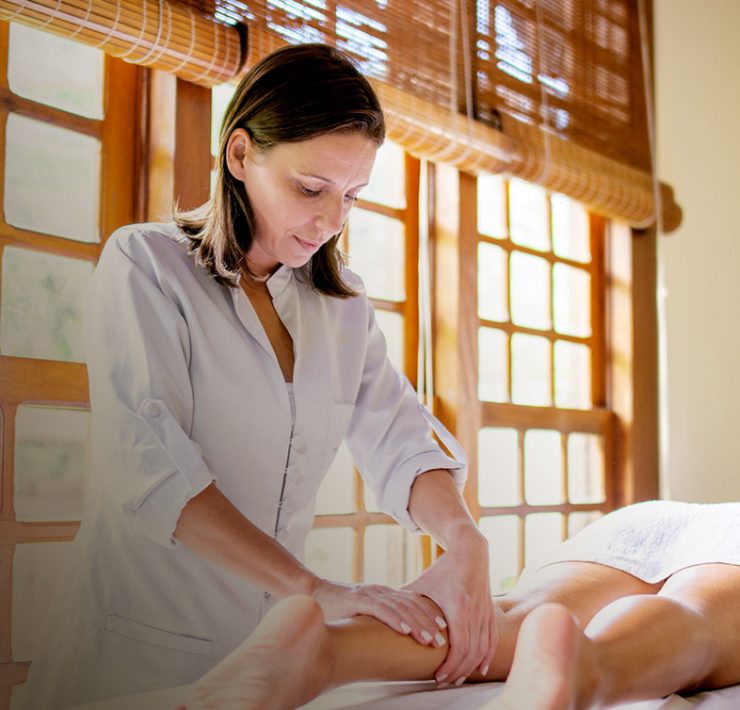The reason why ‘masseuse’ is an offensive word, plus the challenges of a massage therapy career (and how we’re helping overcome them).
Over the past six years, we’ve been lucky enough to work with thousands of great massage professionals. And since launching Zeel Spa® in November 2016 — Zeel’s spa staffing platform to fulfill last-minute massage bookings — we’ve also been fortunate to work with spa directors across the country. By doing so, we have learned one key fact: massage therapists are undervalued professionals.
There’s a misconception that being a massage therapist is a frivolous pursuit. However, we at Zeel can attest to the fact that it is a challenging and demanding career that gives back to so many people. It’s also a career that requires a license in virtually every state in the US, only received after years of study and preparation.
At Zeel, our lifeblood is our team of exceptional massage therapists. We have constructed the best technology and app for massage therapists, and we work with them in over 65 cities around the US. But we don’t have a company unless we can find and work with the best-licensed massage therapists (LMTs) in the business.
Despite the increasing recognition of massage in wellness and health and the years of training, practice, and customer care required, massage therapists continue to be undervalued — both in earnings and professional respect.
Why is ‘Masseuse’ a Problematic Term for Massage Therapists?
We think this attitude is crystallized in the use of one word: masseuse.
We can’t tell you how many times we’ve heard our massage therapists being called masseuses. This word makes massage therapists very uncomfortable. Masseuse used to be the standard term for female massage therapists (and masseur for male massage therapists), just as female flight attendants were once called stewardesses. However, in the 1980s, the term fell out of use in the massage industry, as it came to be associated with sex work.
It’s doubly important to avoid this inappropriate connotation for massage therapists within the Zeel network because they frequently travel to customers’ homes and hotel rooms. (This issue informs one of the reasons Zeel provides best-in-class security for our massage therapists, ID-verifying all customers upon signup.)
One of our licensed Zeel Massage Therapists in Charleston, South Carolina, Lizzie Ford, shares, “I feel that, along with the majority of massage therapists, the term ‘masseuse’ is outdated; it brings a negative connotation to the public, and it implies a promiscuous lifestyle. I fully believe in being an advocate for health and wellness, and that’s just one of the reasons why we are therapists, not masseuses.
Whenever I find myself conversing with someone who uses the term ‘masseuse,’ I politely inform him or her how we dislike it, and I explain why.”
What Are the Challenges of a Full-Time Massage Therapy Career?
Massage therapists face a double challenge. Not only must they fight for respect, they also face the challenges inherent in the field: physical and financial limitations.
Becoming a massage therapist is no easy feat. Massage therapists are trained at massage institutes across the US, and partake in a minimum of 1 year of training and academic study plus over 500 hours of hands-on experience before getting their license (exact number of hours varies by state), at a cost of approximately $6,000 to $10,000.
This training is thorough, intensive schooling; a license cannot be obtained by simply watching videos online. Moreover, most massage therapists continue their education to hone their craft — much like lawyers, doctors, and other professionals.
The job has a physical limit
Massage therapy is a calling for many. But it’s not an easy role to play. “This is a physical job,” notes Les Sweeney, president of the ABMP, Associated Bodywork & Massage Professionals. “There is an actual limit to the number of hours a massage therapist can perform massage every week,” adds Sweeney. He cites the typical physical maximum as 25 hours a week — that is, the number of hours that the average therapist can effectively, physically work with his or her hands. That means the field of massage therapy, by definition, is a part-time job.
For this reason, many massage therapists will work a second job. In 2016, 49% of massage therapists had another job besides massage therapy. Still others deliberately choose massage therapy for the part-time nature of the work — either because of educational or family obligations, or simply the freedom of being freelance.
Fighting for better pay
As far as pay goes, we are proud to say that Zeel is a leading force in the area of therapist compensation. Since the creation of Zeel Massage On Demand® in 2012, we’ve made sure that our massage therapists are fairly paid for their hard work. They typically earn 70% of the price of each Zeel Massage, with an 18% tip automatically added and clearly indicated on the receipt. This percentage means they earn, on average, twice (or more) what massage therapists earn at typical spas and salons and even more at franchises, where the pay rate is even lower.
Between the aging of the population and people’s increased focus on health and wellness, the demand for massage therapists will only continue to grow. We need to make sure that massage therapists today — and the massage therapists of the future — will be fully supported and respected when choosing this important line of work.
Interested in becoming a Massage Therapist for Zeel? Apply today.
Marcy is the SVP of People and Communications at Zeel. In addition to overseeing the humans of Zeel, Marcy has written about workplace topics for more than 20 years both at Zeel and as VP of Content for Vault.com, a career information web site and publisher.







